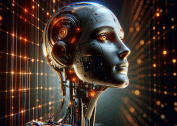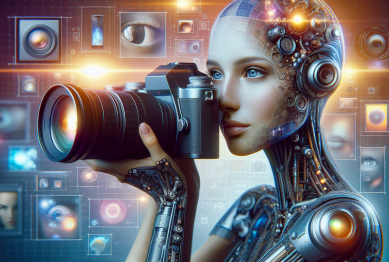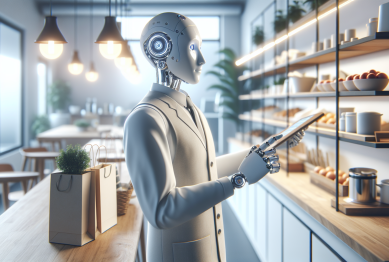Quantum computing is no longer just a theoretical dream. In 2025, its rapid progress is changing industries, research, and daily tech. This guide explores what quantum breakthroughs mean for technology, security, and your digital world—all explained in clear, approachable language.
Quantum Computing in 2025: What’s Different?
Quantum computing has moved beyond the laboratory. By 2025, prototypes have matured into advanced systems that significantly outperform classical computers on select tasks. The momentum comes from decades of research in quantum physics, now translated into real hardware and algorithms. Major technology companies and emerging startups are racing to build, test, and deploy their quantum platforms, bringing new attention to the field and raising expectations for near-term impacts. Many experts believe quantum computing will soon tackle problems traditional computers find impossible, shifting how society interacts with data and technology. (Source: https://www.nature.com/articles/d41586-023-02069-7)
Why does 2025 matter for quantum advancement? Several breakthroughs are converging. New quantum bits (qubits) are more stable and reliable, with error correction techniques improving steadily. These developments address quantum decoherence, a critical obstacle in previous years. Additionally, quantum hardware has gotten smaller and more accessible. Instead of room-filling machinery, quantum processors now fit in compact, cooled environments, and some can even be accessed through the cloud by researchers, students, and businesses. The democratization of access accelerates innovation and places quantum tools in the hands of curious minds everywhere. (Source: https://www.ibm.com/blog/quantum-computing-in-2025)
Another major difference in 2025 is the growth in quantum software development. There’s a new wave of programming languages and simulator tools specifically designed for quantum systems. These languages help bridge the gap between existing coding experience and the unique demands of quantum logic. Collaborative platforms and online communities offer learning resources for both beginners and experts, breaking down knowledge barriers. This widespread support makes it easier for industries and individuals to start exploring quantum technologies and building their own projects. (Source: https://www.nature.com/articles/d41586-022-03654-6)
Real-World Applications: What Quantum Changes
Quantum computing’s influence in 2025 can be seen in sectors like pharmaceuticals, finance, logistics, and energy. In drug discovery, quantum simulations help scientists model molecular interactions more accurately, dramatically speeding up the search for new medicines. Complex protein folding—a computation that stumped even supercomputers—now becomes feasible, opening up possibilities for designing treatments for previously incurable diseases. These achievements result from quantum’s unique ability to analyze vast numbers of potential outcomes in parallel, which was impossible before. (Source: https://www.niaid.nih.gov/news-events/quantum-computing-benefits-biomedical-research)
Finance firms have adopted quantum computing for portfolio optimization and fraud detection. Quantum algorithms rapidly sift through trillions of possibilities to find optimal asset combinations, maximizing returns while minimizing risk. For cybersecurity, quantum’s speed helps spot suspicious transaction patterns in near real-time, increasing trust in digital finance. The energy sector also leverages quantum algorithms to optimize power grids, storage, and renewable energy deployment. These real-world innovations are transforming industries and bringing measurable improvements. (Source: https://www.gov.uk/government/news/new-quantum-tech-guide-for-financial-services)
Quantum-powered logistics and supply chain management address bottlenecks that classical computers struggled to solve. Routing the fastest path for global shipments or efficiently allocating resources in a disaster scenario—both are now within reach. Even climate modeling and materials science rely on quantum simulations to better predict outcomes and design solutions for sustainability challenges. These high-value uses make quantum computing a core part of research and operations in 2025.
How Quantum Security Is Shaping the Future
Security is evolving rapidly due to quantum computing’s capabilities. Traditional cryptography, which secures emails, online banking, and government data, depends on mathematical problems that classical computers can’t solve quickly. Quantum machines, however, process these problems with astonishing speed, threatening to break today’s strongest encryption. This shift requires new defenses—quantum-resistant algorithms. Cybersecurity researchers in 2025 are developing and testing these next-generation protocols using ‘post-quantum cryptography’. Governments and industry are working urgently to update standards and system designs. (Source: https://www.nist.gov/pqc)
Quantum cryptography isn’t just about threats. It also brings new ways to secure information. Quantum key distribution (QKD) uses the laws of physics to send messages that cannot be secretly intercepted without detection. Experiments with QKD networks are ongoing in Europe, Asia, and North America, helping critical infrastructure and major corporations test a new era of communication protection. As each successful trial brings the technology closer to commercial deployment, confidence in quantum-secured privacy grows. (Source: https://www.euroqci.eu/)
The urgency of updating digital infrastructure makes quantum security a hot topic for policymakers in 2025. From telecoms to transport and finance, organizations are planning long-term resilience strategies. Collaboration between global standards bodies, researchers, and private industry ensures that quantum safety isn’t left behind. Keeping up with these security trends is vital for anyone responsible for sensitive data or online communication.
Learning and Working in a Quantum World
Quantum computing’s complexity once made it the domain of only PhDs and specialist engineers. Now, educational resources are widely available to anyone interested. Universities in 2025 offer online quantum programs alongside in-person labs, with open curriculum modules from institutions like MIT’s OpenCourseWare. Many companies sponsor hackathons and workshops tailored for diverse backgrounds, including developers, data scientists, and business leaders. These opportunities help prepare a new generation of quantum-skilled professionals. (Source: https://ocw.mit.edu/courses/6-089a-quantum-computation-january-iap-2020/pages/syllabus/)
On the job, quantum awareness is now part of key upskilling efforts. Companies provide quantum training so their engineers and analysts understand how to harness, interpret, and apply quantum outputs to business challenges. There is active recruitment for specialties like quantum software engineering, algorithm development, and quantum machine learning. As quantum solutions become part of general digital workflows, more people are learning foundational quantum concepts—even without a science background. This emphasis on quantum literacy reflects an evolving workplace and the need to keep pace with technological change.
Online platforms like Coursera, IBM Quantum Experience, and Qiskit Community expand access further. These open-source collaborations enable experimentation even without dedicated hardware, letting learners run simulations, contribute code, and share results. As quantum computing’s reach grows in 2025, so does the community of people building and benefiting from its breakthroughs. The transition from niche to mainstream is underway, opening new pathways for both curiosity and career advancement.
Quantum Computing’s Impact on Artificial Intelligence
The fusion of quantum computing and artificial intelligence (AI) promises unprecedented leaps in data analysis capabilities by 2025. Quantum neural networks and hybrid quantum-classical models perform calculations that would take classical AI models years to complete. This power redefines everything from natural language processing to genetic research, where analyzing vast data sets in real time is essential. Researchers worldwide are exploring how quantum can supercharge AI tasks, including optimization, pattern recognition, and deep learning. These intersecting fields are providing solutions once thought unreachable.
Quantum advantages in AI are also creating smarter, more adaptive systems for healthcare, environment, and public administration. For example, quantum-powered AI tools are used to interpret medical images, anticipate disease outbreaks, and simulate policy impacts before implementation. This boosts efficiency and supports more accurate decision-making, which is vital in complex or high-stakes domains. As both quantum hardware and AI algorithms mature, the integration deepens, making these innovations central to the future of smart technology systems.
New ethical and technical questions arise with this powerful combination. Transparency, bias, and data privacy are critical issues under discussion, ensuring that quantum-AI advances benefit society responsibly. Educators, policymakers, and industry leaders are working together to address challenges as opportunities multiply. Maintaining this balance helps technology progress in a thoughtful, purposeful way—while keeping public trust front and center.
What to Expect Next: Preparing for a Quantum Future
The momentum behind quantum computing in 2025 suggests more transformative changes on the horizon. Governments, businesses, and educational institutions continue to expand funding and partnerships, making quantum research more inclusive. New applications will emerge as accessibility increases, unlocking tools that haven’t been imagined yet. This encourages both established industries and startups to experiment with quantum-enhanced services and products.
For individuals, staying informed about quantum trends supports both professional agility and future readiness. Reading authoritative reports, following online lectures, and testing hands-on tools are all ways to build quantum literacy. As new roles appear in fields like quantum ethics, quantum business strategy, or quantum user experience, skills developed today could turn into meaningful opportunities tomorrow. Having even a basic understanding of qubit principles and quantum logic circuits will be an asset for a broad range of careers.
Preparing for a quantum future in 2025 means cultivating adaptability and curiosity. Embracing change, seeking out credible information, and participating in the community make it possible to benefit from the coming waves of technological innovation. As quantum computing blends further into science, technology, and daily life, it’s clear that the story is just beginning. Explore more as the future unfolds.
References
1. NIST. (2024). Post-Quantum Cryptography. Retrieved from https://www.nist.gov/pqc
2. European Quantum Communication Infrastructure. (2024). Quantum key distribution networks. Retrieved from https://www.euroqci.eu/
3. IBM Research. (2025). Quantum Computing in 2025. Retrieved from https://www.ibm.com/blog/quantum-computing-in-2025
4. NIH/NIAID. (2023). Quantum Benefits for Biomedical Research. Retrieved from https://www.niaid.nih.gov/news-events/quantum-computing-benefits-biomedical-research
5. Nature. (2023). Quantum Computing’s Next Steps. Retrieved from https://www.nature.com/articles/d41586-023-02069-7
6. MIT OpenCourseWare. (2024). Quantum Computation Course. Retrieved from https://ocw.mit.edu/courses/6-089a-quantum-computation-january-iap-2020/pages/syllabus/









